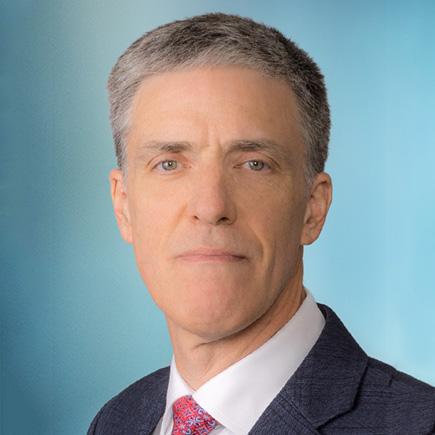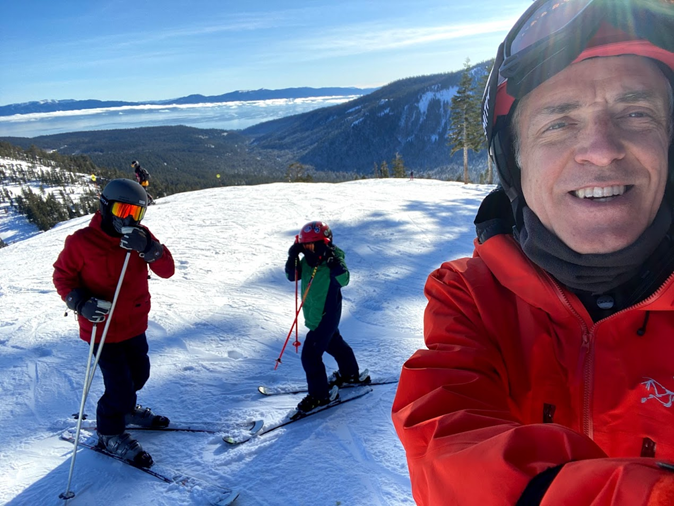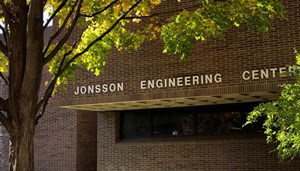
On Creativity, Curiosity, Lifelong Learning, and Leading in the Age of Innovation
Tell us a bit about yourself.
 I grew up in Haddonfield, New Jersey, just outside of Philadelphia, in a home filled with electronics, computers, and ham radio equipment—my father nurtured a deep interest in the sciences. But it was also a house where music, theater, and the arts were ever-present, creating a balance between technical curiosity and creative expression.
I grew up in Haddonfield, New Jersey, just outside of Philadelphia, in a home filled with electronics, computers, and ham radio equipment—my father nurtured a deep interest in the sciences. But it was also a house where music, theater, and the arts were ever-present, creating a balance between technical curiosity and creative expression.
RPI ultimately became the right fit for me, though it wasn’t a straight path. I began studying physics, driven by a desire to understand the universe, but I soon discovered that my mind wasn’t wired for the level of abstraction physics demanded. Transitioning to electrical engineering was natural. I remain deeply grateful to AB Carlson, then head of the School of Engineering, who made it possible for me to transfer from the School of Science in the middle of my sophomore year. His support and belief in me profoundly changed the course of my life.
What was your RPI experience like? Any special memory from your RPI days that you wish to share?
My RPI experience was both intellectually intense and deeply rewarding. I loved diving into subjects like physics, electronics, microwave circuit design, and field and wave theory—concepts that challenged me and shaped how I think. What made RPI truly memorable was the community. Living with my roommates in our apartment in Hall Hall gave me lifelong friendships and a welcome sense of balance.
Outside the classroom, I found a home with RPI Players and WRPI. Both were filled with some of the brightest, quirkiest, and most fascinating people I’ve had the pleasure of knowing. WRPI, in particular, was formative. It was there that I put classroom theory into practice, discovered a lasting love for systems engineering, and had my first experience managing people as Chief Engineer of the station. That role helped me realize how much I enjoyed building and leading teams—something that has remained central to my career ever since.
Did RPI prepare you for success?
Ultimately, my RPI experience did prepare me for success. I learned how to approach complex technical problems with structure and discipline, but just as importantly, I learned how to work with—and learn from—remarkably interesting people. It was also where I discovered that I truly enjoy leading teams. I firmly believe that my time at WRPI directly contributed to many of my professional successes, both in engineering and later in investing.
You are the executive vice president and chief investment officer of the Franklin Equity Group at Franklin Templeton. What does this work entail? What do you enjoy most about this work? What are some exciting projects you are working on? How do you keep up with the latest advances in technologies from AI to quantum computing?
I lead a team of investors and business professionals committed to delivering long-term value for our clients and shareholders. On the investment side, we believe that innovation is the most reliable path through structural change—and the key to unlocking value and sustaining. My role centers on helping our teams identify and value innovative companies across public and private markets, spanning the global economy.
A key part of my work is overseeing our fundamental and analytical investment process. We combine deep, bottom-up research with disciplined risk management. Much of our risk framework draws on the mathematical thinking I first encountered at RPI, especially in courses like quantum mechanics and thermodynamics. That technical foundation continues to shape how we assess uncertainty and structure portfolios today.
On the business side, I partner with colleagues to help the Franklin Equity Group grow and evolve with the needs of Franklin Templeton’s shareholders.
I also co-manage the Franklin Technology Fund, which invests in the companies driving digital transformation across the global economy—from semiconductors and software to AI infrastructure and beyond.
Keeping pace with breakthrough technologies, from AI to quantum computing, is both a challenge and a privilege. I stay close to the innovation frontier by engaging directly with founders, technologists, and domain experts—and by cultivating an insatiable curiosity about how the world is changing.
RPI was instrumental in preparing me for this path. It gave me the tools to solve complex problems, lead diverse teams, and stay passionately curious about science, systems, and innovation. That foundation still powers my work today.
How did you make the switch from software and systems engineering to financial services?
My transition from software and systems engineering into financial services was more natural than it might appear. I realized that my love of complex systems translated directly into analyzing companies—each one a dynamic system with the goal of efficiently generating free cash flow. While I left the engineering lab to pursue an MBA UC Berkeley, I didn’t stray far: I stayed close to technology and innovation through my investment work. I do miss writing code and being hands-on with systems design, but I’ve found deep purpose in working with the innovators who need capital to bring groundbreaking ideas to life.
What is your advice to current RPI students, especially as it relates to preparing for careers they might not anticipate or jobs that may not exist today?
- To current RPI students, my biggest advice is this: learn how to learn, build resilience, and cultivate range. The rapid scaling of AI guarantees that the world ahead will evolve quickly—demanding adaptability and versatility. You should become fluent in the tools of tomorrow, but also expand your perspective beyond the technical.
- Some of the most valuable parts of my RPI experience came from outside the classroom. My time with RPI Players and WRPI helped me build the balance I needed for an interesting, rewarding life and career. That same kind of range will be essential for you.
- RPI’s deep focus on science and engineering is a strength—but I encourage students to deliberately broaden their exposure to the humanities. Learn history. Read poetry. Host a radio show. Explore things that stretch you beyond your core discipline. Just like training a generative AI model across a wider set of inputs improves its performance on core tasks, expanding your own range will enhance your ability to solve problems, lead teams, and adapt to whatever the future holds.
What do you do for fun? Favorite books, podcasts?
I like to cycle around the hills of Silicon Valley.
My favorite podcast is “13 Minutes to the Moon” by the BBC. If you think the Apollo 11 moon landing was just a clean, scripted success, 13 Minutes to the Moon will change your mind. Season 1 unpacks the white-knuckle drama of the final descent—from software alarms to last-second fuel decisions—through riveting storytelling and real NASA audio. You’ll meet the unsung heroes behind the mission: young engineers, pioneering computer scientists, and flight controllers who made split-second calls that determined history. It’s not just a space story - it’s a human story of innovation, failure, and triumph under pressure.
